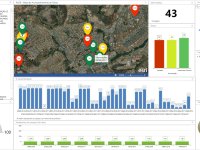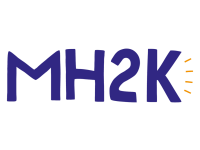In order to support the operation of certified cash registers, the Financial Administration (FA) launched a crowd-sourcing campaign in 2016 for the purpose of motivating consumers to receive an invoice, take it, check whether it is correct and send it to the FA. This way, every citizen was able to contribute crack down on invoice fraud and to reduce the shadow economy (which is the part of an economy involving goods and services which are paid for in cash, and therefore not declared for tax.)
Innovation Tag: Public Service Delivery
MyInfo allows Singapore citizens to provide personal data, only once (if not already made available), instead of doing so for every government digital service. It aims to increase convenience and save time in digital transactions, while reducing cost by reducing hardcopy document verification.
The Environmental Sanitation Company of the Federal District of Brazil uses of spatial intelligence to reduce water consumption, increase revenues and optimize process.
The Price Bank enables public procurement parties to have points of reference for price quotes for particular products, as it is a database of electronic invoices issues in Brazil. Participants narrow their search via descriptors and filters to find the right quote.
SPID (Sistema Pubblico di Identità Digitale, or Digital Identity System) is a solution for accessing public administration online services through once-only digital identity (user & password) generated by private Identity Providers. It can be used from any device (PC, tablet & smartphone) by citizens. SPID aims to improve the relationship between citizens & the public administration by expanding the digital approach in using public services.
A multi level interdiscipline municipality model was created in order to improve the level of service and treatment provided to the targeted population. The aim of the model is to reduce the time of the homelessness of the young adults at risk and speed the transfer from "reaching out" and detection to treatment and rehabilitation.
Mental health issues affect about 1 in 10 young people in the UK. MH:2K gives young people a leadership role in solving this most important of challenges. It empowers 14-25 years old to identify the mental health issues they see as most important, engage their peers in exploring these topics, and work with decision-makers to make recommendations for change.
The Ministry of Economic Development and the National Clearing House implemented a program to promote cashless payments in public administration. Our goal is to develop a model for acceptance of non-cash payments using point of sale (POS) terminals and enable the use of virtual terminal (WebPOS Paybynet) in public sector, which is free for both the administration and the citizens.
In the labour and social services administration, the Trelleborg municipality uses the help of a case handler program to automate certain parts of processes that concern for example processing of financial assistance. The result is less administration and more time for core services.
High transaction costs, long bureaucracy, and a weak controlling system create bad image of public services, especially in terms of forestry business. One Timber One ID (SIPUHH) is an innovation as a tool in controlling forestry business. It provides a system in which any timber traded has an ID, so its origin and legality can be identified. It promotes greater accountability on the timber industry to respect forestry law.


